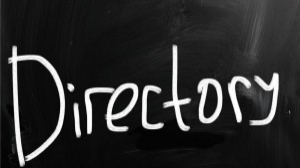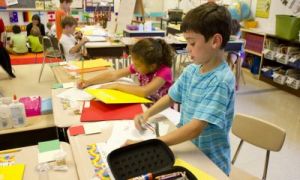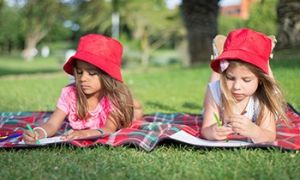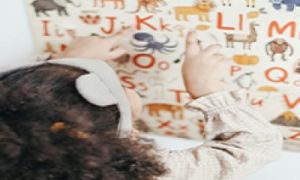

At the beginning of the year, children step into a new environment filled with unfamiliar faces, routines, and expectations. By introducing the theme “Building Our Classroom Family,” educators create a safe, welcoming space where every child feels valued, connected, and supported.
This theme emphasises belonging, emotional safety, and community. It helps babies form secure attachments, toddlers learn the joy of helping and sharing, and preschoolers develop empathy and responsibility. Through songs, stories, group activities, and family-centered displays, children begin to see the classroom not just as a place to learn, but as a family where everyone cares for one another.
By weaving this theme into daily practice, educators intentionally nurture identity, celebrate diversity, and strengthen the bridge between home and school. The classroom becomes a family where each child’s uniqueness is honored, and together, they build the foundation for lifelong learning and relationships.
Every educator has witnessed it: a child overwhelmed by emotions so big they spill into the learning space. These moments can feel disruptive, but they are also opportunities. When children learn to regulate emotions with the support of trusted adults, they build resilience, empathy, and lifelong skills for navigating challenges.
This learning experience is designed to approach the topic gently through play, storytelling, small‑world exploration, and hands‑on creativity. Rather than focusing on danger, it highlights helpers, community care, and nature’s remarkable ability to heal and regrow. The aim is to empower children with knowledge in a developmentally appropriate way, supporting emotional regulation while strengthening their connection to Country and community.
By engaging with familiar materials, calm routines, and open‑ended play, children can explore big ideas safety, responsibility, resilience, and environmental cycles in ways that feel safe, supported, and meaningful. This plan honours children’s voices, respects cultural perspectives on fire and land care, and provides educators with a thoughtful, responsive framework for guiding conversations during bushfire season.
Celebrate global traditions, spark curiosity, and build cultural awareness with this beautifully designed poster set featuring Santa figures from around the world. These posters introduce children to the diverse ways different cultures celebrate the festive season through clothing, colours, names, and unique customs.
Bushfires are a natural part of the Australian landscape, but for young children they can also be confusing, worrying, or emotionally charged—especially when smoke, sirens, or community conversations become part of their daily experience. In early childhood settings, educators play a vital role in helping children make sense of what they see and hear in a way that is safe, honest, and developmentally appropriate.
Talking about bushfires with young children is not about giving detailed information or exposing them to frightening images. Instead, it is about offering calm explanations, reassuring routines, and opportunities for children to express their thoughts through play, art, and conversation. When approached thoughtfully, these discussions can strengthen children’s sense of safety, build resilience, and deepen their understanding of nature, community helpers, and environmental regrowth.
Pattern blocks are a classic early childhood resource, and the Christmas Pattern Block Mats add a joyful seasonal twist that children absolutely love. These printables invite children to create festive images using standard pattern blocks, supporting spatial reasoning, problem‑solving, and shape recognition in a hands‑on, engaging way.
Whether you’re planning Christmas activities, setting up a math provocation, or looking for quiet table tasks during the festive season, these mats are a perfect addition to your program.
Support toddler identity development through choices, routines, relationships, and play. Explore practical examples that build autonomy, belonging, and emotional confidence.
Toddlers develop a strong sense of identity through everyday choices, warm relationships, predictable routines, and meaningful play. When educators intentionally design experiences that honour children’s autonomy, culture, emotions, and social connections, toddlers begin to see themselves as capable, valued, and connected members of their community.
These experiences don’t need to be elaborate. In fact, identity is built most powerfully through repetition, belonging, and being truly seen.
The 10 Free Santa Beard Cutting printables are a simple yet powerful activity designed to help children practice their cutting skills. By trimming Santa’s beard along different types of lines, children engage in a playful, festive task that builds essential developmental skills.
Morning group time sets the tone for the day in early childhood settings. For children aged 3–5, this is a golden opportunity to build belonging, strengthen language, nurture rhythm, and ease transitions into play and learning. A well‑designed group time moves calmly from centering rituals into energising activities, balancing structure with child‑led moments. Below are engaging strategies and examples that educators can adapt to their own classrooms, ensuring mornings feel joyful, connected, and purposeful.
In early childhood settings, emotional literacy is foundational to well-being, learning, and relationships. The free printable Feeling Check-In posters featuring clear visuals, child-friendly language, and actionable strategies offer educators a powerful way to support children in identifying, expressing, and managing their emotions. Whether used during transitions, check-ins, or moments of dysregulation, these posters help embed emotional intelligence into daily practice.
 Open ended questions cannot be responded to with one word answers such as yes or no. These types of questions enables a child to provide… Read More
Open ended questions cannot be responded to with one word answers such as yes or no. These types of questions enables a child to provide… Read More
 During your child’s preschool years, an important milestone begins to emerge. This is the development of pre-writing skills. Pre-writing skills are used to encourage, develop… Read More
During your child’s preschool years, an important milestone begins to emerge. This is the development of pre-writing skills. Pre-writing skills are used to encourage, develop… Read More
 Open ended materials enables children to play freely. They are objects that have no rules to follow, use or function. Raw materials that can be… Read More
Open ended materials enables children to play freely. They are objects that have no rules to follow, use or function. Raw materials that can be… Read More
 An Acknowledgment of the Country is a way of showing respect for the Traditional Owners and can be given by both non-Indigenous people and Aboriginal… Read More
An Acknowledgment of the Country is a way of showing respect for the Traditional Owners and can be given by both non-Indigenous people and Aboriginal… Read More
 Language plays an important role in a child’s development. It enables a child to communicate effectively with their family, learn at school, socialize with friends,… Read More
Language plays an important role in a child’s development. It enables a child to communicate effectively with their family, learn at school, socialize with friends,… Read More
 Like adults, children have to deal with their own stress in life. Moving house, starting a new school, preparing for a new sibling - these are… Read More
Like adults, children have to deal with their own stress in life. Moving house, starting a new school, preparing for a new sibling - these are… Read More
 Playdough is such a versatile material. It provides numerous benefits to children as they manipulate it, it is safe and soothing and provides children with… Read More
Playdough is such a versatile material. It provides numerous benefits to children as they manipulate it, it is safe and soothing and provides children with… Read More
 Teaching children about sustainability enables them to appreciate and respect the natural environment. Early childhood services can provide meaningful hand on learning experiences in order… Read More
Teaching children about sustainability enables them to appreciate and respect the natural environment. Early childhood services can provide meaningful hand on learning experiences in order… Read More
 Recycling is an important concept that teaches children to care for the environment. It encourages children to be responsible and show a growing appreciating for… Read More
Recycling is an important concept that teaches children to care for the environment. It encourages children to be responsible and show a growing appreciating for… Read More
 Incursions provide children with the opportunity to explore meaningful learning experiences in the comfort of their early childhood service. The following provides a directory of… Read More
Incursions provide children with the opportunity to explore meaningful learning experiences in the comfort of their early childhood service. The following provides a directory of… Read More

To support children achieve learning outcomes from the MTOP Framework, the following list gives educators...
See more...
Quality Area 2 of the National Quality Standard focuses on Children’s Health and Safety, ensuring that...
See more...
The following provides a playful mix of language and literacy experiences perfect for toddlers (around...
See more...© 2009-2026 Aussie Childcare Network Pty Ltd. All Rights Reserved.

